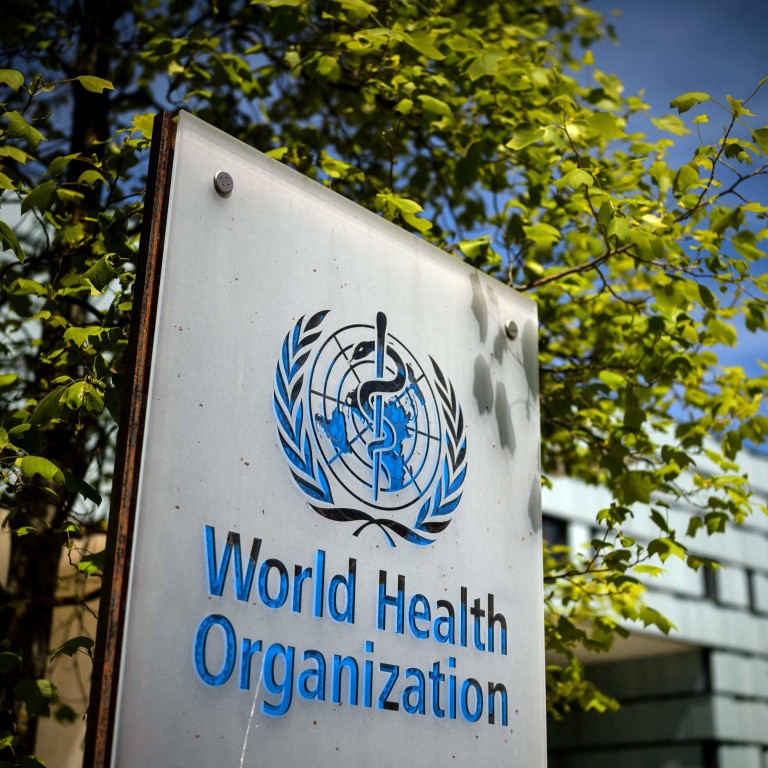
Global risk from Omicron coronavirus variant very high, WHO says
- Assessments so far based on limited data but likelihood of potential further spread high, health body says
- Researchers in South Africa and other countries are carrying out studies to assess variant’s characteristics, it says
“Given mutations that may confer immune escape potential and possibly transmissibility advantage, the likelihood of potential further spread of Omicron at the global level is high,” the WHO wrote in the brief released on Monday afternoon.
“Depending on these characteristics, there could be future surges of Covid-19, which could have severe consequences, depending on a number of factors including where surges may take place.
“The overall global risk related to the new [variant of concern] Omicron is assessed as very high.”
A number of key questions about the variant, which was first detected in southern Africa earlier this month, remain unanswered. These include whether it can spread more easily between people, whether it can dodge vaccine or infection-induced immune protections, and whether it causes more severe disease than previous strains.
Scientists at the WHO and around the world were working on answering these questions, WHO director general Tedros Adhanom Ghebreyesus said on Monday night at a meeting of the organisation’s governing body.
“We shouldn’t need another wake-up call, we should all be wide awake to the threat of this virus, but Omicron’s very emergence is another reminder that although many of us might think we are done with Covid-19, it’s not done with us,” Tedros told health ministers attending the largely virtual event to discuss a pandemic treaty.
“Hard-won gains could vanish in an instant” without global solidarity to end the pandemic, he said.
Early evidence from surveillance in South Africa, which reported the Omicron variant to the WHO on November 24, suggests the variant has a growth advantage over the highly transmissible Delta strain, which is dominant now.
Infections had increased steeply in recent weeks in the country, coinciding with the detection of the variant, the WHO said on Sunday.
Preliminary evidence also suggested there might be an increased risk of reinfection with Omicron, meaning the immune systems of people infected with other strains might not be able to recognise the mutated strain.
The WHO called on governments to share as much information on the variant as possible and to prepare their health systems for potential surges.
“If another major surge of Covid-19 takes place driven by Omicron, consequences may be severe. Increasing cases, regardless of a change in severity, may pose overwhelming demands on healthcare systems and may lead to increased morbidity and mortality,” the agency said in its technical brief.
The variant raised concern among scientists due to the number of changes concentrated in the spike protein – part of the virus targeted by many vaccines. The WHO said these included 26-32 changes of amino acids in the spike protein, as compared with the reference strain.
Some of these changes have also been seen in other variants like Delta and Alpha, where they are thought to help the virus infect people or evade the immune system’s antibodies, scientists have said.
“Further research is needed to better understand the escape potential against vaccine- and infection-induced immunity. Research efforts are ongoing, and the data are expected to be available in the coming weeks,” the WHO said.
More than a dozen countries had identified cases of the variant within their borders as of Monday afternoon.
Governments across the world imposed fresh travel bans to try to stem the spread, despite calls from the WHO for borders to remain open.
The United States, Brazil, Britain, Singapore and European Union countries were among those to roll out targeted travel limits.
Israel barred foreign travellers from all countries for two weeks from Sunday night, while Japan barred most foreign travellers for an unspecified period from Monday.
China did not move to tighten its already stringent travel controls on foreigners as of Monday.
Foreign ministry spokesman Wang Wenbin said China always followed developments in the pandemic closely, relied on science-based measures to cover people entering the country and made “necessary adjustments”.


